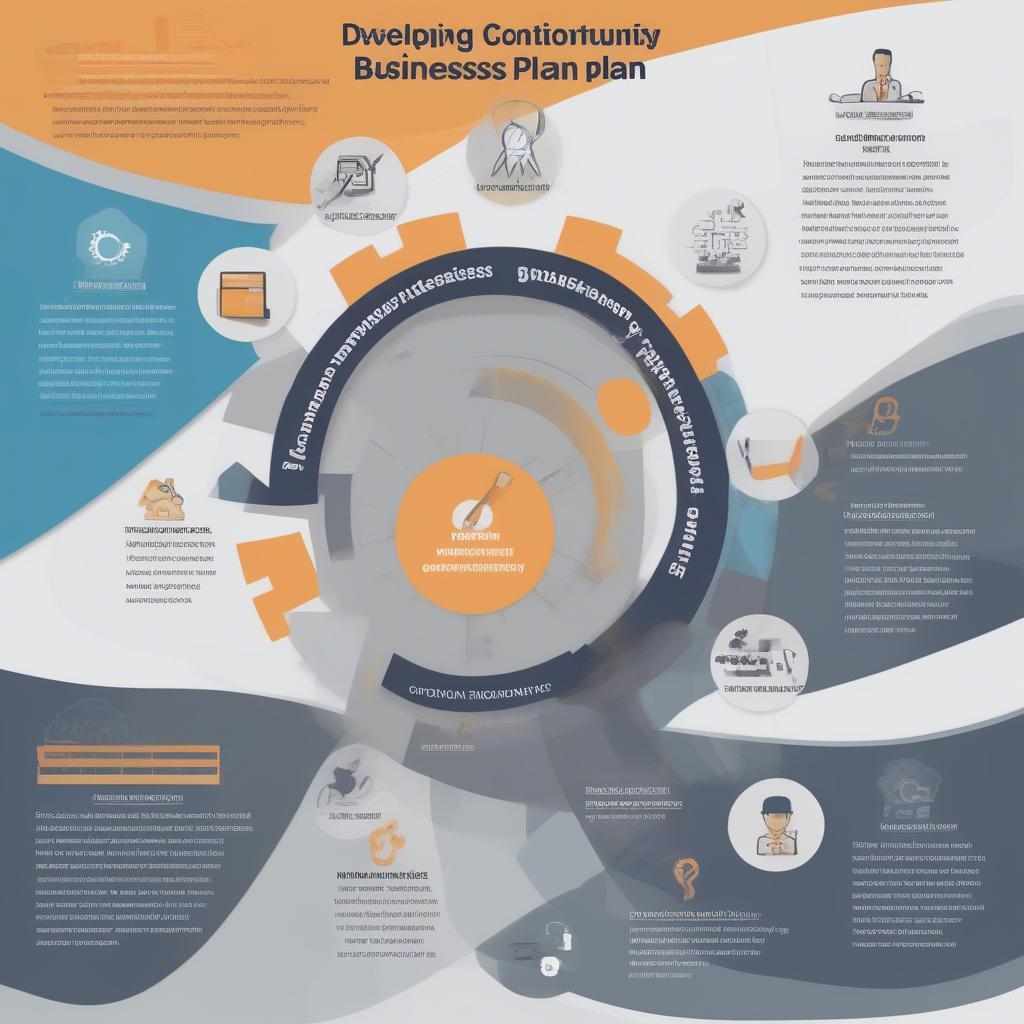A business continuity plan is essential for any business, large or small. In today’s unpredictable world, disruptions can come from anywhere, and having a plan in place can mean the difference between survival and failure. This article explores why a business continuity plan is not just a good idea, but a necessity.
What Makes a Business Continuity Plan So Important?
A business continuity plan (BCP) outlines how a business will continue operating during unexpected disruptions like natural disasters, cyberattacks, or even pandemics. Ignoring the need for a BCP is like navigating uncharted waters without a compass – dangerous and potentially disastrous. Having a robust BCP allows you to:
- Minimize downtime: A well-defined plan enables a swift response, reducing the time your business is offline and minimizing revenue loss.
- Protect your reputation: Demonstrating preparedness builds trust with customers and stakeholders, solidifying your reputation as a reliable partner.
- Safeguard your assets: From data to physical infrastructure, a BCP helps protect vital assets, minimizing potential damage and financial losses.
- Maintain customer trust: By ensuring continuous operation, you maintain customer satisfaction and loyalty, preventing them from seeking alternative providers.
- Comply with regulations: Certain industries require BCPs for compliance, and having one can prevent penalties and legal issues.
 Effective Risk Management
Effective Risk Management
Key Components of a Successful Business Continuity Plan
A comprehensive BCP encompasses various crucial elements, each designed to address specific aspects of business disruption. These components include:
- Business Impact Analysis (BIA): Identifying critical business functions and the potential impact of disruptions.
- Recovery Strategies: Defining specific steps to restore critical functions within predefined recovery time objectives (RTOs).
- Communication Plan: Establishing clear communication channels with employees, customers, and stakeholders during a crisis.
- Testing and Training: Regularly testing and updating the plan to ensure its effectiveness and familiarizing employees with their roles.
- Alternate Work Arrangements: Establishing remote work capabilities and alternative work locations to maintain operations.
Why Business Continuity Plan Should Be a Top Priority for Your Garage?
For garages and workshops, a BCP is particularly crucial. Downtime can mean significant revenue loss and customer dissatisfaction. A robust plan helps you quickly recover from unforeseen events, ensuring continued service delivery and customer satisfaction. Imagine a scenario where a fire damages your workshop. Without a BCP, you could lose valuable equipment, customer data, and weeks or months of revenue. A well-defined plan, however, allows you to swiftly relocate operations, access backup data, and communicate with customers, minimizing the impact of the disaster.
 Car Garage Management Software
Car Garage Management Software
Addressing Common Questions About Business Continuity Planning
- Is a BCP only for large businesses? Absolutely not. Businesses of all sizes benefit from having a BCP.
- How often should I update my BCP? Regular reviews and updates, at least annually or after significant changes to your business, are essential.
- What’s the difference between a BCP and a disaster recovery plan? While related, a BCP focuses on maintaining overall business operations, while a disaster recovery plan focuses specifically on IT systems and data recovery.
Real-World Examples: The Importance of “Why Business Continuity Plan”
“In my experience, a well-defined business continuity plan is the cornerstone of a resilient business,” says Nguyen Van A, CEO of ABC Auto Repair. “During the recent floods, our BCP allowed us to quickly relocate operations, minimizing downtime and ensuring continued service to our customers.”
“A business continuity plan isn’t just a document; it’s a lifeline,” adds Tran Thi B, Owner of XYZ Garage. “When a cyberattack crippled our systems, our BCP allowed us to restore data from backups and resume operations within hours, preventing significant financial losses.”
 Business Continuity Plan Illustration
Business Continuity Plan Illustration
Conclusion: Why Business Continuity Plan is Non-Negotiable
In today’s volatile business environment, a business continuity plan is no longer a luxury, but a necessity. By proactively planning for disruptions, you protect your business, your employees, and your future. Implement a robust business continuity plan and ensure your business can weather any storm and emerge stronger than ever.
FAQ
- What are the main benefits of having a business continuity plan?
- How do I create a business continuity plan for my small business?
- What are the most common business disruptions?
- How can Ecuvn.store help me with business continuity planning?
- How often should I test my business continuity plan?
- What is the cost of not having a business continuity plan?
- What is the first step in developing a business continuity plan?


